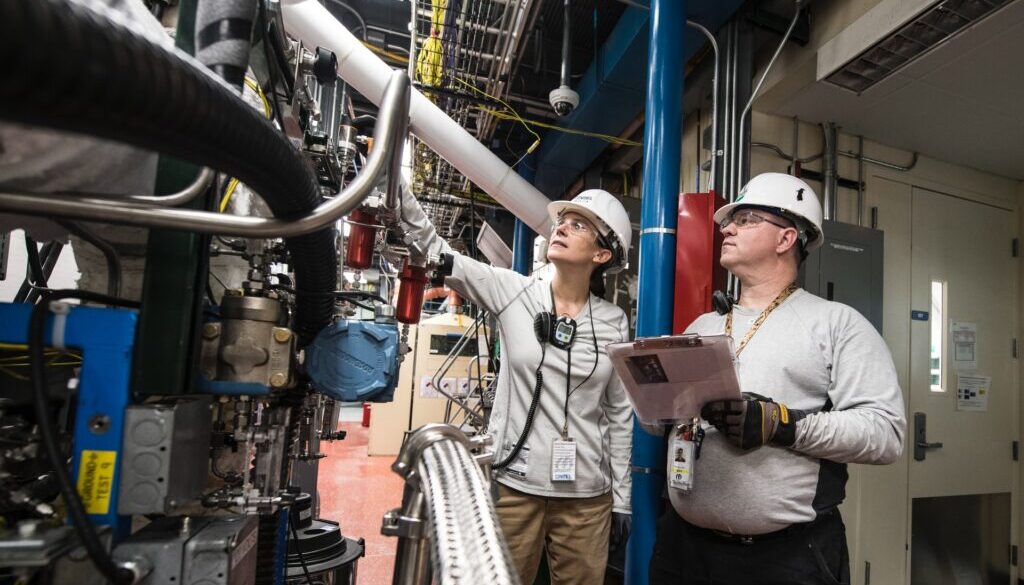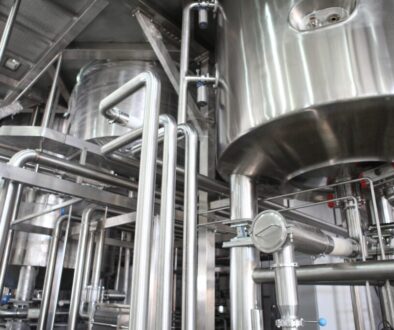To find ways to conserve energy and increase productivity, industrial engineers meticulously study industry-specific product requirements. Most industrial engineers have at least a bachelor’s degree in their chosen field. Companies also appreciate good, on-the-job experience, so most graduate-level engineering degrees are helpful. However, it is important to note that engineering professionals who are hired for industrial jobs tend to have much more flexibility than those working in more traditional businesses. Read on to learn about what you can expect from your career as an industrial engineer.
What are the job responsibilities of an industrial engineer? The exact duties vary depending upon the company you work for, but generally, an industrial engineer job description includes the following: evaluate plans and designs for manufacturing, construction and environmental applications; develop or recommend methods of reducing waste; evaluate manufacturing or production processes for safety and quality control; and maintain quality control records. It’s important to remember that these professionals are not just designers or implementors. They are key decision makers, responsible for the production processes and operations of a wide variety of business sectors. Therefore, it is important to identify and understand your industrial engineer job description and what you will be responsible for.

Industrial engineering involves the study of how things work. In the process, the engineers learn about energy, matter and systems. Engineers use scientific principles, mathematics and various forms of engineering technology to solve problems. Some examples of the types of topics, an industrial engineer may study include: aerospace, automotive, electronics, power generation, watercraft, construction and manufacturing.
What are the benefits of selecting an engineering degree program that includes job responsibilities that match my ideal career goal? A reputable accredited program that trains industrial engineers offers job stability, security and the ability to advance in your chosen field. In addition, the curriculum and courses are designed to prepare students for a wide variety of jobs in the energy, manufacturing and mechanical sectors. With the right bachelors degree or certificate program, you can gain a number of entry level or higher positions based on your qualifications and training.
What types of positions can I expect to find after completing my education? If you have completed your bachelor’s degree program, you may qualify for several specific positions. These could include project managers, project supervisors, quality assurance specialists, quantitative or qualitative specialists, design engineers and much more. The specific positions available will vary by discipline and location.
How will I benefit from developing my problem-solving, communication skills and analytical skills? As an industrial engineer you will be responsible for solving problems. In order to be successful, you must be good at communicating with a variety of people. You will also need to be able to communicate well with machinery and equipment in order to do your job.
What are the benefits for being an industrial engineer? One of the best benefits for being an industrial engineer is the ability to stay on job training. Many of the jobs available involve working with large machinery and other equipment that are programmed. This means that you must always be ready to go out and train for new jobs. In addition, it can be challenging to keep up with the pace of the changing technology that is constantly being improved upon. You may need to be trained frequently according to the industry standards in order to stay competitive.
What are some of the typical day-to-day tasks that an industrial engineer must perform? You will need to complete a wide range of projects, which include manufacturing methods, materials and production specifications. You will also need to complete cost analysis. Finally, you must develop plans and budgets for resource allocation. By learning about cost analysis and learning about manufacturing methods, you will be prepared to promote efficient and effective business practices in all aspects of your organization.



